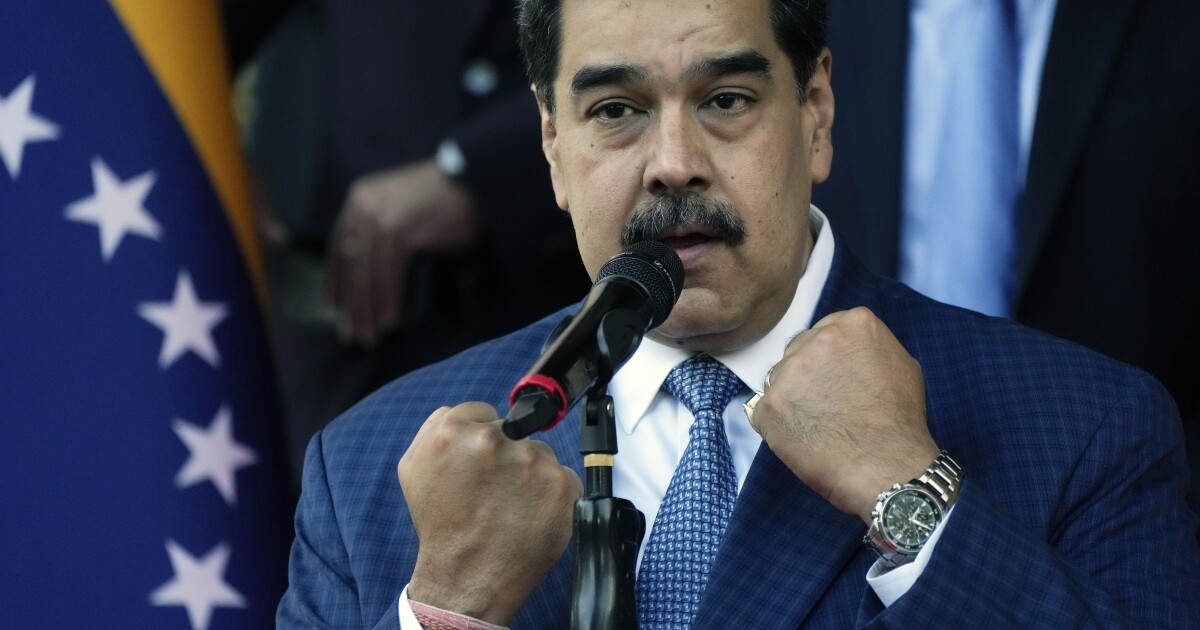US will review sanctions against Venezuela if dialogue progresses

The United States has confirmed that it can review its policy of pressure and sanctions against Venezuela if President Nicolas Maduro and the political opposition resume talks that stopped abruptly in October and move forward with tangible results.
“The solution to the situation in Venezuela is not in Washington. We have made it clear that the United States is willing to ease the pressure of sanctions based on the results at the dialogue table,” Juan Gonzalez, director of the National Security Council for the Western Hemisphere, said in a phone interview with The Associated Press.
Gonzalez’s remarks came a few days after the passage of three months since the Caracas government decided to cut off the dialogue with the opposition it was holding in Mexico City in response to the extradition of Colombian businessman Alex Saab, one of his allies and considered before. Washington as a key witness in corruption cases against Venezuela that were broadcast in Miami and other cities in the country.
Saab, who was extradited from Cape Verde to the United States, was appointed by Caracas as a diplomat in those negotiations. The Venezuelan government is believed to have conducted several alleged corruption deals with him. His extradition further strained relations between the two countries, and in response Caracas returned six US oil officials who were under house arrest to prison.
Gonzalez’s remarks also come days after the opposition won the post of Governor of Barinas, the late former President Hugo Chavez.
Sergio Garrido defeated former Foreign Minister Jorge Arreaza, who was campaigned by senior officials of the ruling party in an attempt to maintain control in that stronghold of Chavista.
During the previous US administration, President Donald Trump implemented several economic sanctions and visa restrictions against Venezuelan officials as a means of applying pressure to oust Maduro. Upon taking office, President Joe Biden’s Democratic administration sought to create consensus with the international community to continue those sanctions while at the same time encouraging dialogue, but it also made clear that the fate of Venezuela is in the government’s hands. country in South America.
For the United States, the last democratic elections in Venezuela were the National Assembly elections in 2015.
Like Trump, Biden has recognized opposition congressional leader, Juan Guaido, as Venezuela’s interim president, a position he declared himself in in January 2019, alleging the 2018 election was rigged.
“We continue to recognize Guaido, but the most important thing is that we support Venezuelans who want democracy,” said Gonzalez, one of Biden’s key advisers on Latin American issues. “For this, the two sides must sit at the table and reach an agreement that will result in ambitious, irreversible and tangible steps that will lead the country in this direction” (democratic elections), he said, referring to the negotiations.
However, he did not specify what concrete results the US government would like to see as a result of the dialogue.
Gonzalez made it clear that unlike Trump, who viewed sanctions as a strategy in themselves to stifle the Maduro government, for the Biden administration, sanctions are tools to be used as part of a broader, coordinated policy with other international partners, including the European Union and Canada.
“The strategy focuses on democratic issues, not on who agrees with us or who disagrees with us, but enables Venezuelans, Nicaraguans and Cubans to be the ones who decide their future,” the official said. The United States has implemented similar sanctions against Venezuela, Nicaragua and Cuba.

“Coffee fanatic. Gamer. Award-winning zombie lover. Student. Hardcore internet advocate. Twitter guru. Subtly charming bacon nerd. Thinker.”











